Designers are embracing stainless steel kitchens in new and surprisingly beautiful ways
Stainless steel kitchens might be best known for their industrial, restaurant-like qualities, but designers are now making them feel unexpectedly luxe

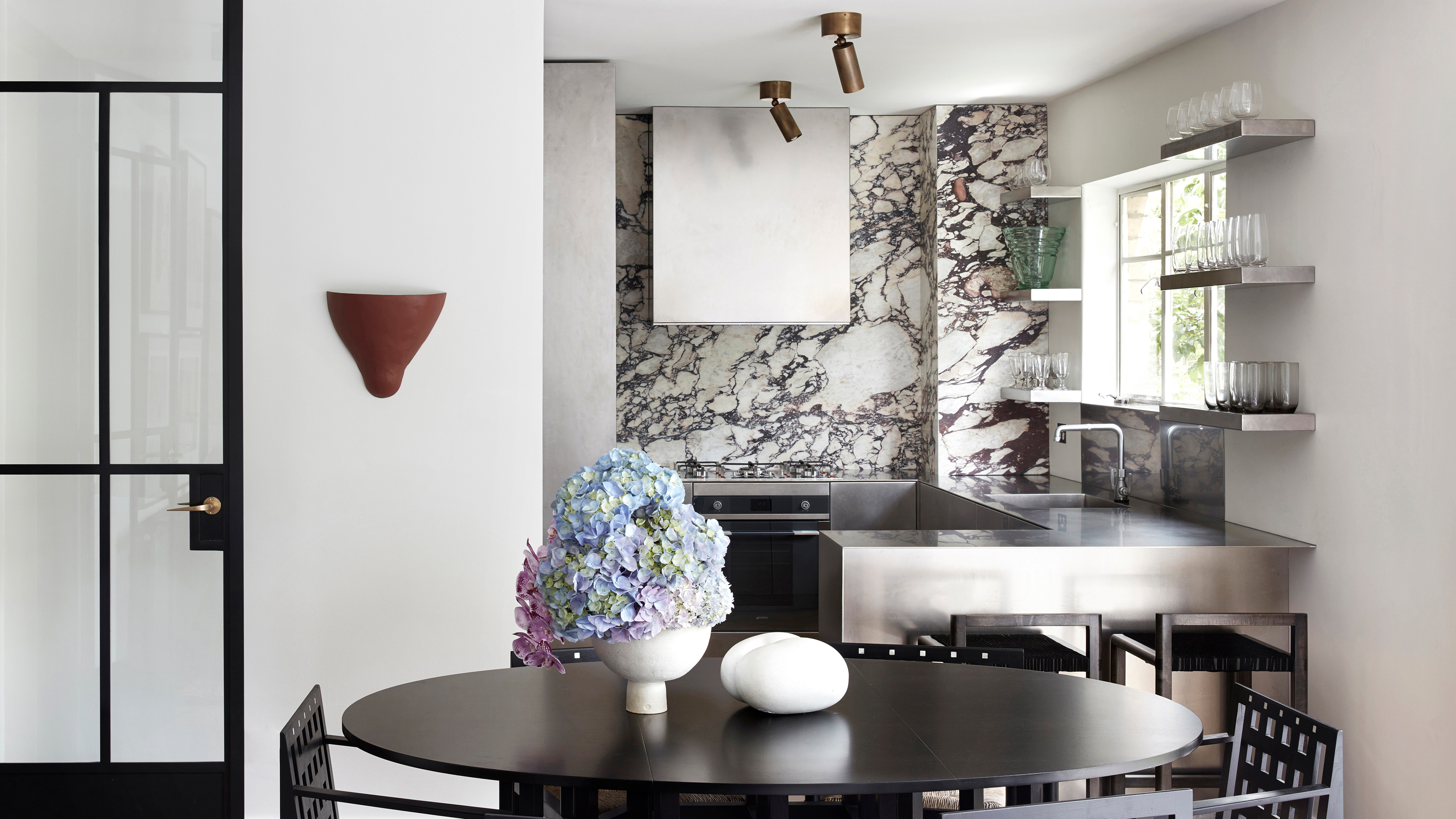
The Livingetc newsletters are your inside source for what’s shaping interiors now - and what’s next. Discover trend forecasts, smart style ideas, and curated shopping inspiration that brings design to life. Subscribe today and stay ahead of the curve.
You are now subscribed
Your newsletter sign-up was successful
Undoubtedly, you're more likely to see stainless steel used in a restaurant's kitchen than in someone else's house when you visit, but this material is starting to creep it's way into modern homes little by little.
Stainless steel is already a classic for the kitchen when it comes to appliances, but it's a material that is often reserved for smaller accessory pieces, and not given the space to really shine. However, now designers are taking the material a step further, applying it to cabinetry and countertops in new and exciting ways. 'Metallics are in, and they are in all over the kitchen space,' says says Ann Muth of appliance brand BlueStar, 'so naturally the most popular metal in the kitchen, stainless steel, is starting to take a more prominent role.'
The result is modern, sleek, unexpectedly luxurious. This modern kitchen idea doesn't just give the space an industrial edge, but can take on an elevated look when used in the right combinations.
So how do we recreate the look at home, why is it proving so popular, and how to we look after our stainless steel kitchens over time? We talk to the experts to find out more about this burgeoning trend.

Oonagh is an experienced homes writer and editor. For this story, she has used her contacts in the interiors industry to discover how the stainless steel kitchen trend is being adopted by designers and architects in different ways.
Where does the stainless steel kitchen trend come from?
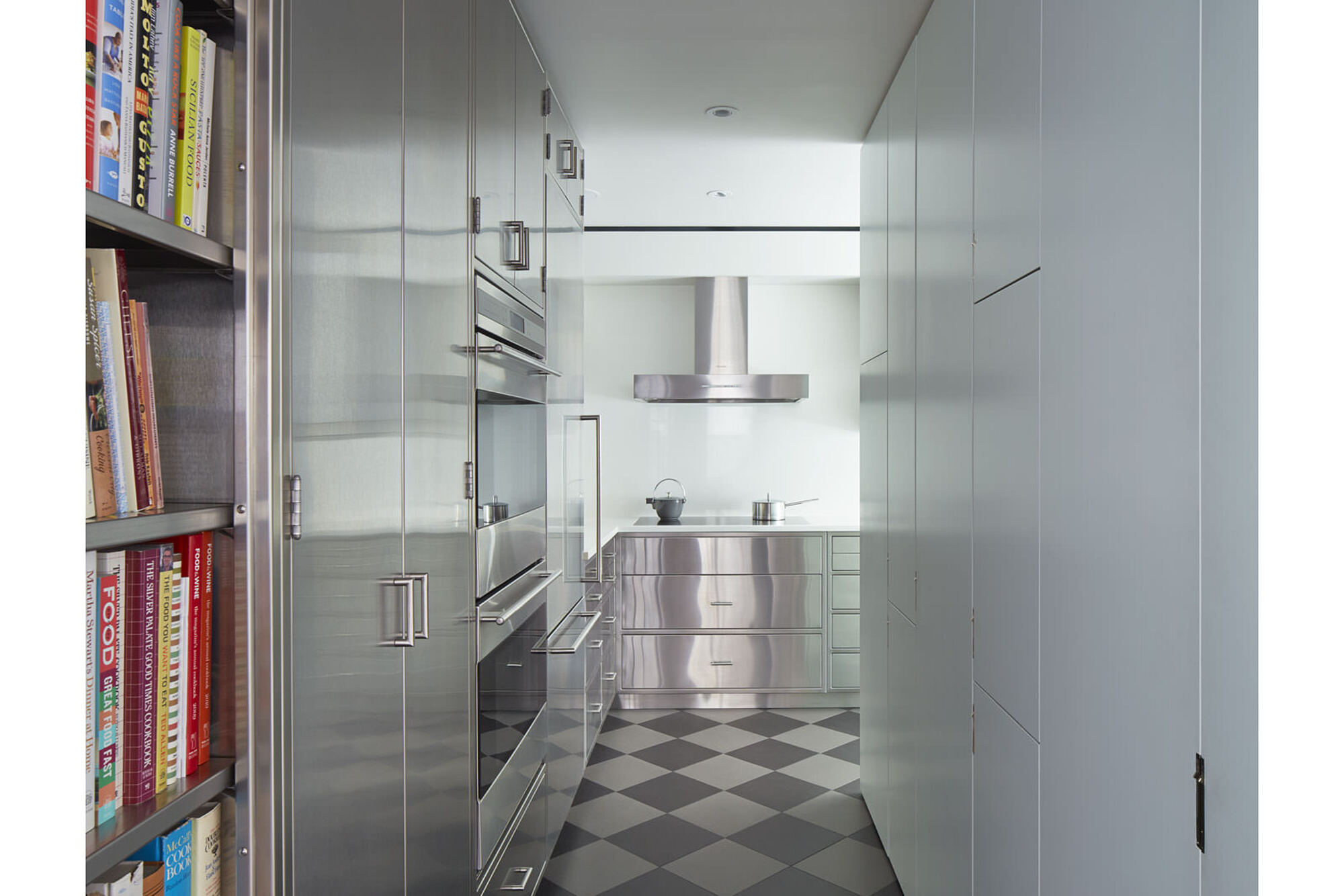
Stainless steel is by no means a new material for kitchens, but as a cabinet and countertop trend designers are treating this metallic finish a new perspective. 'Stainless steel took a backseat to other trends for a bit,' says Eilyn Jimenez, founder and creative director of Miami-based interior design studio, Sire Design, 'but is seeing a resurgence for its clean, polished aesthetic. Clients are requesting this design element because it is a way to bring the mid-century modern style into kitchens,' she adds. The above kitchen, designed by Sarah Jeffreys Architecture and Interiors, captures this more playful, mid-century vibe.
As well as the aesthetic of stainless steel, it's also about the connotations of the trend, with the industrial look commonplace in restaurant kitchens. 'Stainless steel is the true chef's kitchen,' says Ann Muth of BlueStar, which creates chef-inspired appliances. 'It's a kitchen where you can bring the restaurant home.'
'With the continued rise of at-home meal kits anyone can be a home cook, and in many cases they want a kitchen that reflects that,' says Ann. 'It is a clean, industrial look that will last with minimal maintenance.'
The Livingetc newsletters are your inside source for what’s shaping interiors now - and what’s next. Discover trend forecasts, smart style ideas, and curated shopping inspiration that brings design to life. Subscribe today and stay ahead of the curve.
Is a stainless steel kitchen practical?
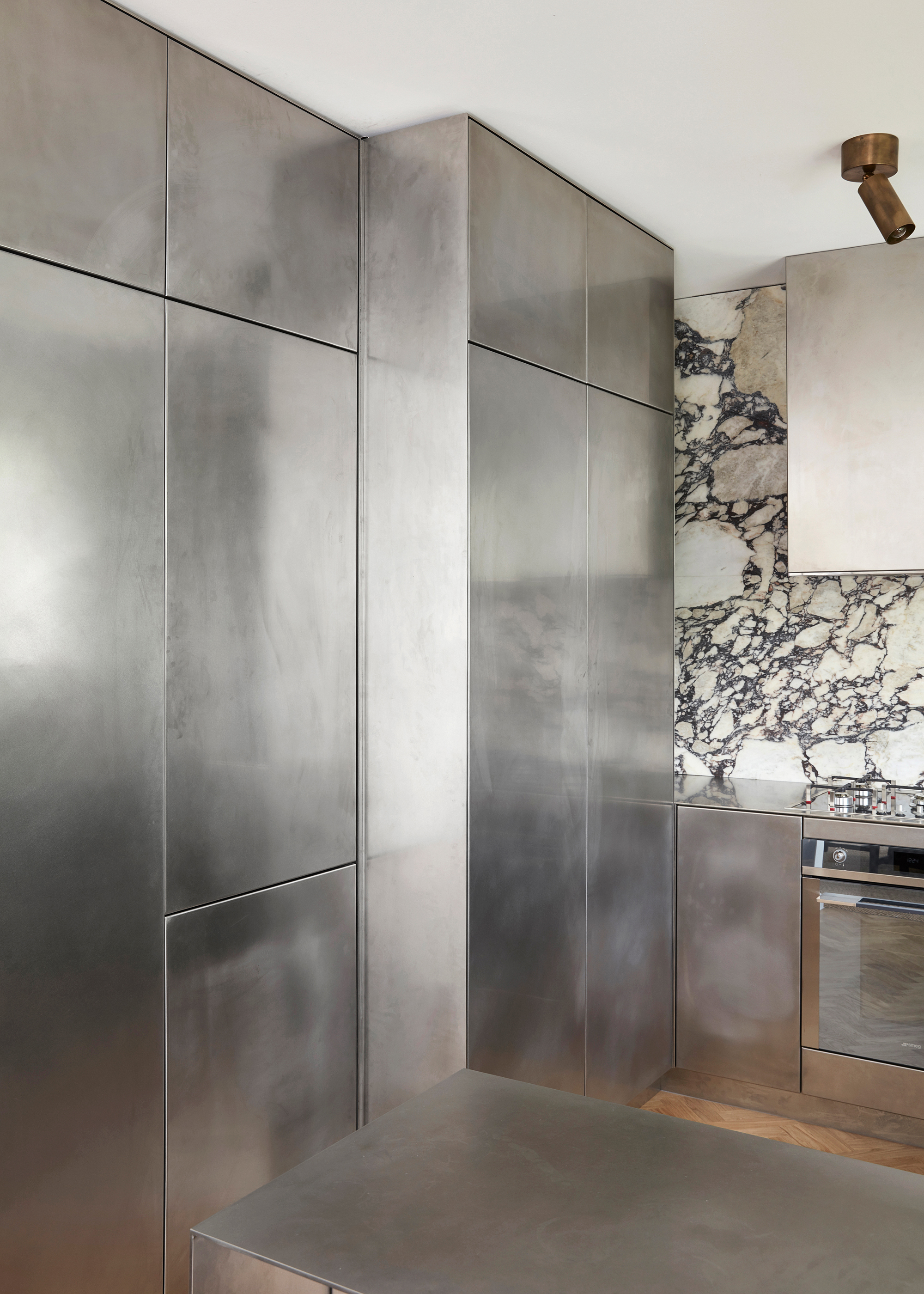
In terms of stainless steel's properties, it is a metal that is first and foremost tough, hard and resilient, great for the kitchen which must withstand daily use and wear and tear. Stainless steel also has a low bacterial retention capacity, making it extremely hygienic, which is why it is used in the food industry. It can also withstand high temperatures, another quality that makes it great for professional kitchens, as well as your kitchen at home.
'In addition to the hygienic and aesthetic principles, stainless steel ages gracefully,' Eilyn tells us. 'It's akin to a marble kitchen in that it gets a patina over time. Steel scratches – but that’s the beauty of it!'
How do I use stainless steel in a kitchen in a modern way?
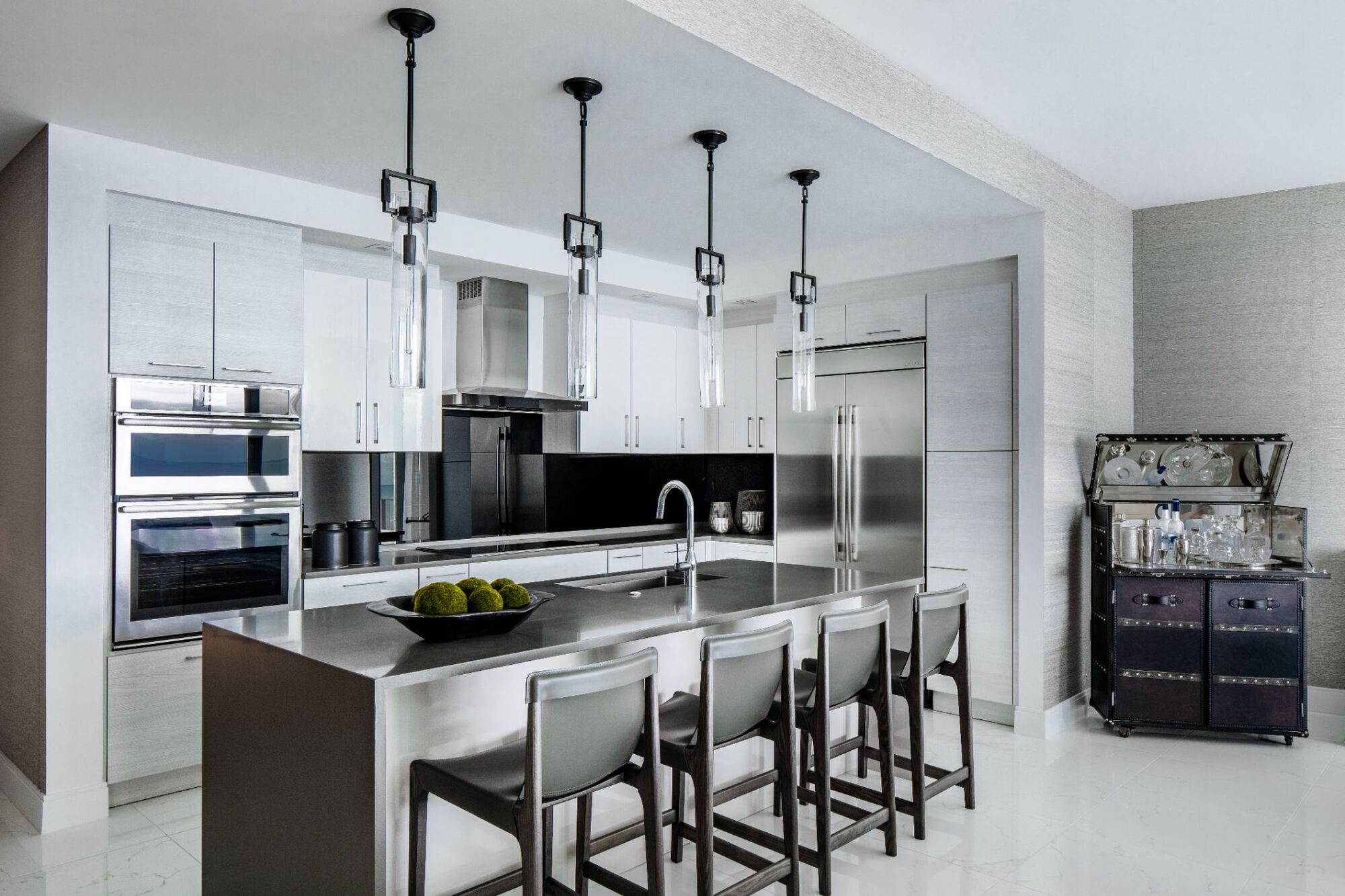
So how do you go about embracing this kitchen trend in your own space? They key is to be confident and brazen with your approach, and one of the best stainless steel kitchen looks is using the material throughout - on cabinets, big ticket appliances and on the island. 'This project is the perfect example,' says Eilyn. 'We went bold with a full stainless steel island, countertops, and appliances, too.'
The risk of the all-silver approach is that it can look stark and harsh. 'Break up the silver look with decorative bowls along the countertops, advises Eilyn. 'Layering books, photos, or even a vase of beautiful flowers makes it more personal.'
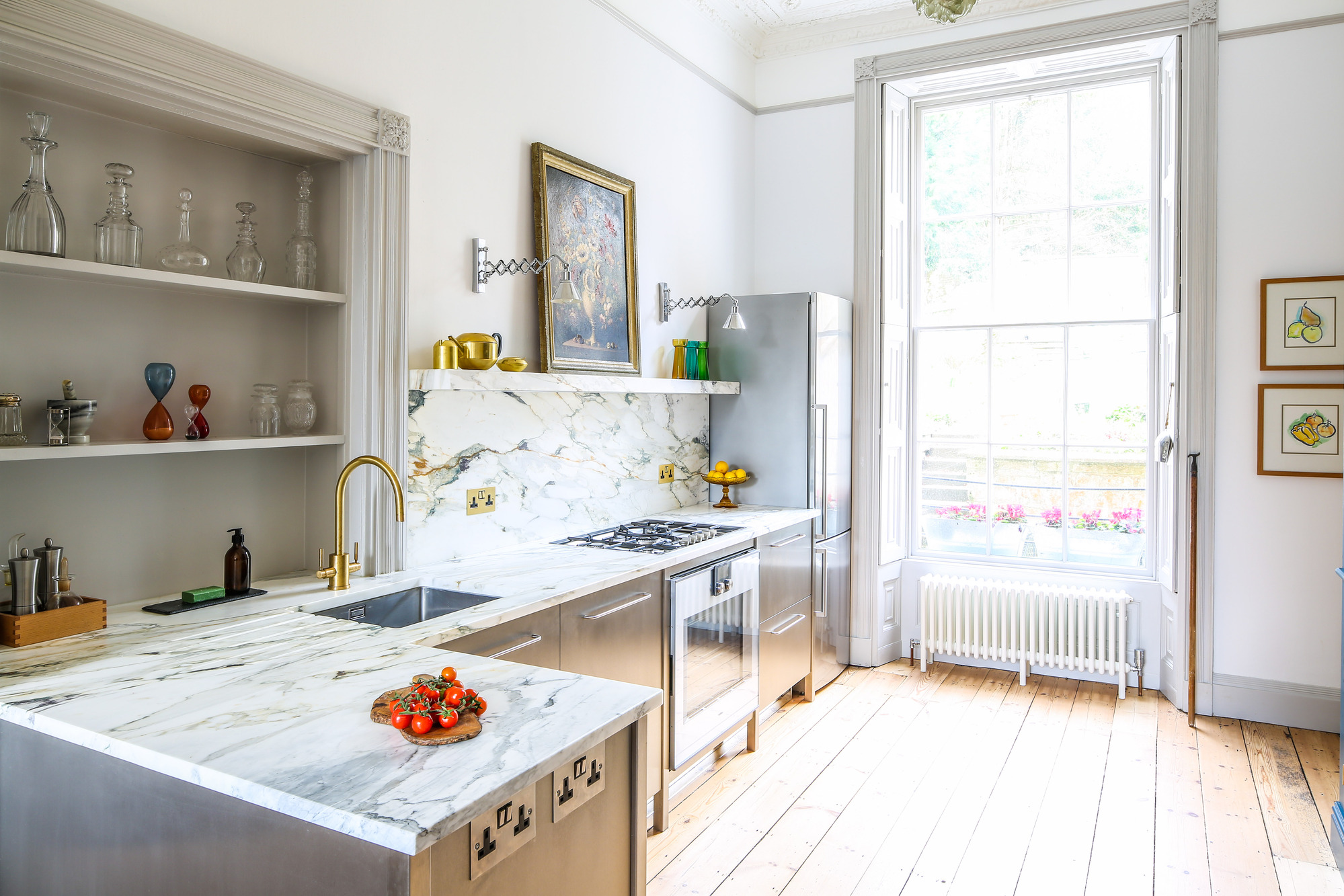
However there is a softer approach to a stainless steel scheme,. Mixing it up with different materials, such as wood or marble, can change the feel of the material. Here, wooden flooring, steel cabinets and a marble worktop elevate the material beyond its industrial connotations.
'We used stainless steel on the cabinets here to create a contrast to the marble worktops and bring an eclectic aesthetic to the traditional Georgian property,' explains designer Zoe Holland of Sustainable Kitchens. 'The stainless steel cabinets are built with mirrored plinth boxes to give the feel of freestanding furniture, which is quite different to the usual Shaker kitchens seen in traditional Georgian properties.'
Alternatively, a wooden countertop could work with a stainless steel cabinet. 'Why not install a butcher’s block in a long kitchen?' suggests Eilyn. 'While the nice, new look is fantastic, it sometimes the character an aged look brings. We wear down these new pieces to add a natural patina that evokes a bit of warmth.'
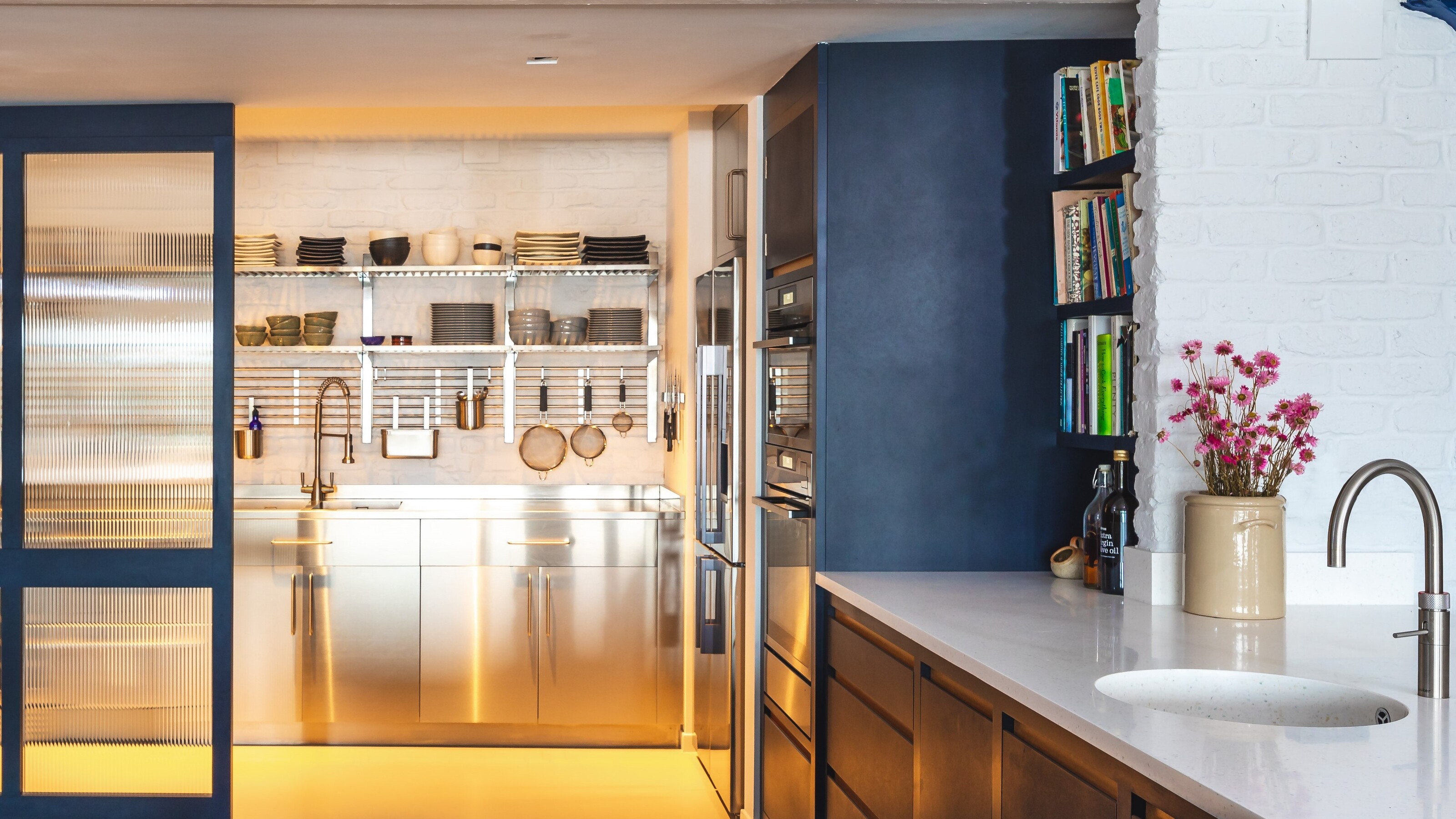
If you're not quite ready for a full kitchen overhaul, consider trying out this style with pops of stainless steel in unexpected places. Go for bigger kitchen appliances, like a popping stainless steel fridge, dish washer or oven to give that professional kitchen look, or go more subtle.
How do you care for a stainless steel kitchen?
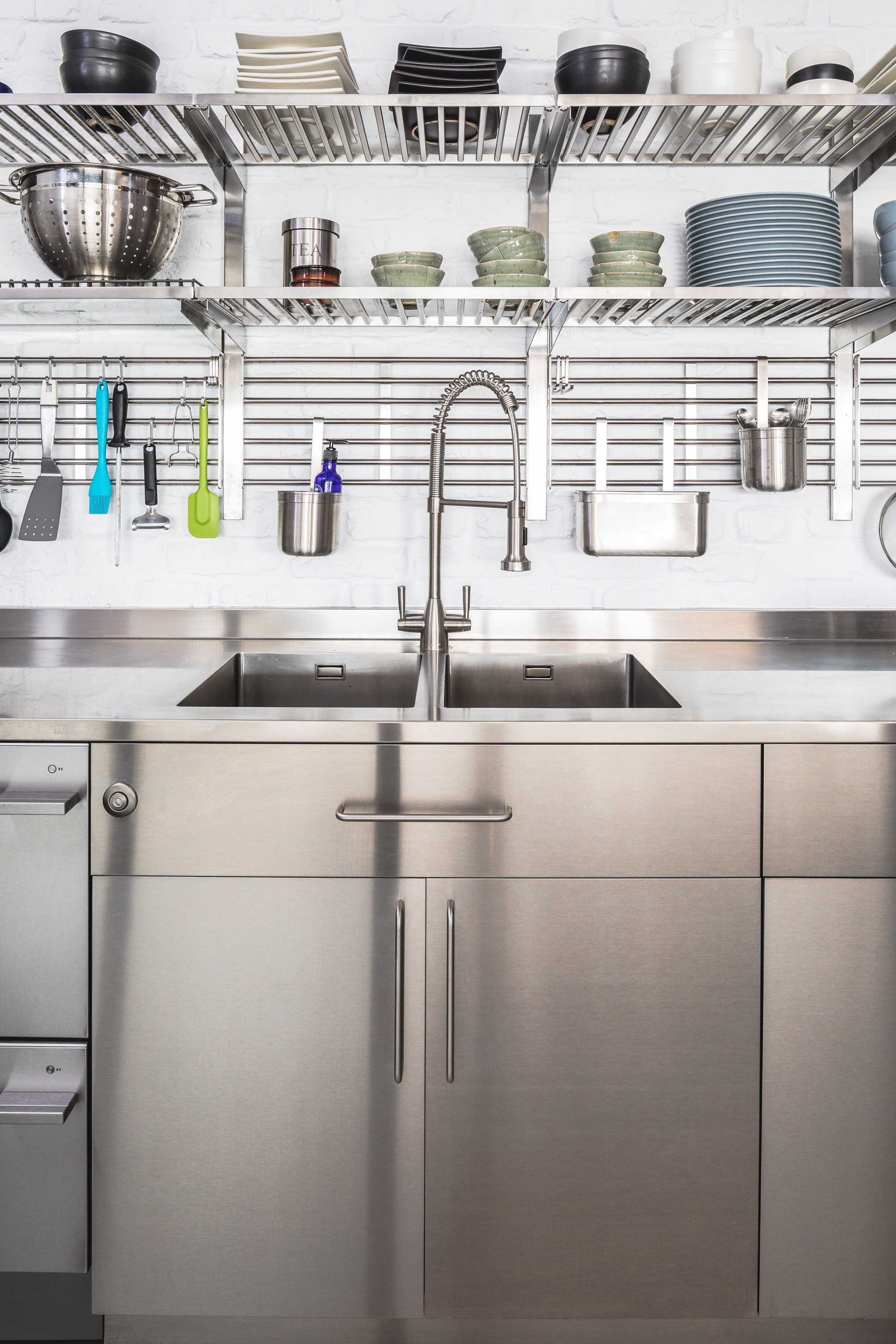
'When choosing a stainless steel kitchen, you've got to be aware that it naturally scratches,' warns Zoe from Sustainable Kitchens. Stainless steel has very fine lines in its material, so whenever you clean or polish, always go along with the grain, not against it. This will make the surface dazzle and protect it from scratches.
Water can leave stains and streaks on finishes, and if it pools, it can rust over time, so another top tip is to try to keep your stainless steel worktop as dry as possible.
'Another big no-no would be to avoid bleach products,' adds Zoe. 'Use natural cleaners and do not use abrasive cleaning materials (unless you want to create the natural patina early on!'

Former content editor at Livingetc.com, Oonagh is an expert at spotting the interior trends that are making waves in the design world. She has written a mix of everything from home tours to news, long-form features to design idea pieces, as well as having frequently been featured in the monthly print magazine. She is the go-to for design advice in the home. Previously, she worked on a London property title, producing long-read interiors features, style pages and conducting interviews with a range of famous faces from the UK interiors scene, from Kit Kemp to Robert Kime. In doing so, she has developed a keen interest in London's historical architecture and the city's distinct tastemakers paving the way in the world of interiors.